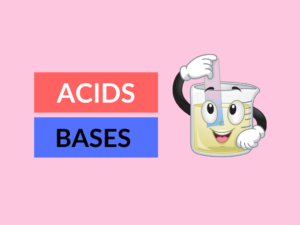The Difference Between Whey and Casein Protein
When it comes to protein powders, two popular options that often come up in discussions are whey protein and casein protein. Both of these protein types have their unique properties and benefits, making them suitable for different individuals and goals. In this article, we will delve into the characteristics, uses, and differences between whey and casein protein, helping you make an informed decision about which one may be the right choice for you.
What is Whey Protein?
Whey protein is a type of protein that is derived from milk. It is a complete protein, meaning it contains all nine essential amino acids that the body needs but cannot produce on its own. Whey protein is quickly absorbed by the body, making it an ideal choice for post-workout recovery and muscle growth.
Examples of Whey Protein:
- Whey protein concentrate
- Whey protein isolate
- Hydrolyzed whey protein
Uses of Whey Protein:
Whey protein can be consumed in various forms, including shakes, bars, and even added to recipes as a protein boost. Some common uses of whey protein include:
- Building and repairing muscles
- Promoting post-workout recovery
- Adding protein to a balanced diet
- Supporting weight loss goals
What is Casein Protein?
Similar to whey protein, casein protein is derived from milk. However, unlike whey protein, casein is a slow-release protein that is digested and absorbed slowly by the body. This slow digestion rate makes it an excellent choice for providing a sustained release of amino acids to the body over an extended period.
Examples of Casein Protein:
- Calcium caseinate
- Micellar casein
- Casein hydrolysate
Uses of Casein Protein:
Casein protein is often used in scenarios where slow digestion and a steady supply of amino acids are desired. Some common uses of casein protein include:
- Bedtime protein supplement
- Long periods without protein intake (e.g., fasting, sleep)
- Prolonged muscle recovery, such as during injury or illness
Differences Between Whey and Casein Protein:
| Difference Area | Whey Protein | Casein Protein |
|---|---|---|
| Absorption Rate | Rapid | Slow |
| Digestion Time | Quickly digested | Digested slowly |
| Muscle Protein Synthesis | Stimulates | Promotes over a longer period |
| Bioavailability | High | High |
| Lactose Content | May contain lactose | May contain lactose |
| Taste | Mild and pleasant | Thicker and can be chalky |
| Usage | Post-workout, anytime protein | Before bed, between meals |
| Availability | Widely available | Less common |
| Cost | Generally cheaper | Often more expensive |
| Texture | Light and easily mixed | Thicker and clumps more easily |
Conclusion:
In summary, whey and casein protein have distinct characteristics and uses. Whey protein is rapidly absorbed, supports muscle protein synthesis, and is commonly used for post-workout recovery or as a daily protein supplement. On the other hand, casein protein is slowly digested, provides a sustained release of amino acids, and is often consumed before bed or during longer periods without protein intake. Deciding between whey and casein protein depends on your specific goals, preferences, and dietary requirements.
People Also Ask:
1. Can whey protein and casein protein be consumed together?
Yes, combining whey protein and casein protein can provide a more balanced protein intake. Whey protein can be ideal for immediate amino acid release, while casein protein offers a more prolonged effect. Mixing them in shakes or recipes can be beneficial.
2. Are there any side effects of consuming whey or casein protein?
Both whey and casein protein are generally safe for consumption. However, individuals with lactose intolerance may experience digestive discomfort due to the lactose content in these proteins. It’s recommended to choose lactose-free options or consult a healthcare professional if you have specific concerns.
3. Can whey or casein protein help with weight loss?
Both whey and casein protein can support weight loss efforts when used as part of a balanced diet and exercise routine. Protein can help increase satiety and promote muscle growth, which can contribute to maintaining a healthy weight or reducing body fat.
4. Which protein type is better for muscle building?
Both whey and casein protein can be beneficial for muscle building, but whey protein is typically favored for its rapid absorption and ability to stimulate muscle protein synthesis immediately after exercise. However, consuming a combination of both types can provide a more comprehensive range of amino acids and a sustained release of nutrients.
5. Can whey or casein protein be used as a meal replacement?
While whey or casein protein can be a convenient and nutritious option, they are generally not intended as complete meal replacements. They can supplement a balanced meal or act as a snack, but it’s important to include a variety of whole foods in your diet to meet all your nutritional needs.


